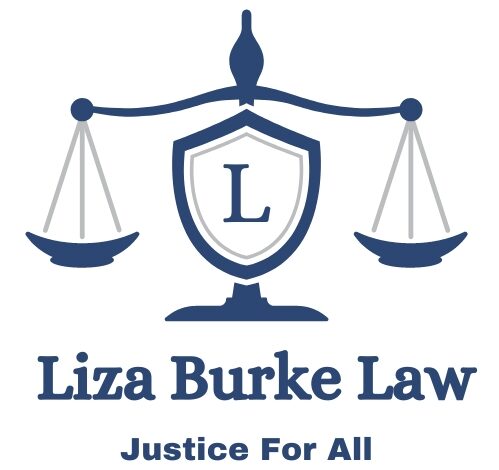Why a Solid Lease Agreement Matters
Lease agreements are the backbone of rental relationships, outlining the rights and obligations of both landlords and tenants. In Ottawa, where the rental market is competitive and heavily regulated by provincial law, having a clear and legally compliant lease isn’t just recommended—it’s essential.
Whether you’re renting a condo downtown or managing a duplex in the suburbs, understanding what goes into a proper lease can prevent conflicts, protect your property, and ensure both parties are treated fairly. A professionally prepared lease, supported by an experienced real estate lawyer in Ottawa, creates a foundation of trust and legal certainty.
The Legal Framework: Ontario’s Residential Tenancies Act
In Ontario, all residential rental agreements are governed by the Residential Tenancies Act (RTA). This legislation outlines tenant and landlord rights, rules on rent increases, eviction procedures, and what can—and cannot—be included in a lease.
As of 2018, landlords are required to use the Ontario Standard Lease for most residential tenancies. However, this document is a baseline, not a comprehensive agreement. A lawyer can help you add legally permitted terms to tailor the lease to your specific property.
Key Elements Every Lease Agreement Should Include
A complete lease agreement is more than a form—it’s a detailed record of how the rental relationship will function. At a minimum, it should include:
1. Names of All Parties
All tenants who will occupy the unit should be listed and sign the agreement. This ensures clarity around responsibility for rent and rules.
2. Description of the Rental Property
Include the full address and a clear description of what’s being rented—whether it’s an entire unit, a basement apartment, or a room in a shared house.
3. Term and Renewal Options
Specify the lease duration (typically one year), renewal terms, and notice requirements for ending or extending the tenancy.
4. Rent Amount and Payment Details
Document the rent amount, due date, payment method, and any penalties for late payment. Include whether utilities are included or separate.
5. Security Deposits and Key Deposits
In Ontario, landlords cannot charge a security deposit, but a last month’s rent deposit is allowed. Key deposits are permitted but must be reasonable and refundable.
6. Maintenance and Repairs
Clarify the division of responsibility for property upkeep. Landlords must keep the unit in a state of repair, but tenants may be required to maintain cleanliness or change light bulbs.
7. Rules and Restrictions
Outline rules for smoking, pets, guests, noise, and property use. These must be reasonable and in line with the RTA.
8. Additional Terms
Your lawyer can help you include additional provisions, such as renter’s insurance requirements, parking rules, or procedures for dispute resolution, so long as they don’t conflict with the RTA.
Protecting Landlords: Legal Strategies That Hold Up
As a landlord, your lease is your first line of defense. Legal counsel helps you:
– Ensure all clauses are enforceable
– Comply with disclosure requirements
– Draft proper notices for rent increases or termination
– Avoid illegal terms that can void your lease
A real estate lawyer can also help structure rental agreements for short-term rentals, student housing, or multiple units—each with unique legal considerations.
Protecting Tenants: Ensuring Fair and Transparent Agreements
Tenants have the right to a clear and fair lease that complies with the law. With legal guidance, tenants can ensure:
– No illegal fees or conditions are included
– All rental inclusions (parking, laundry, storage) are documented
– The unit is safe, well-maintained, and up to code
– Any limitations on use or occupancy are reasonable
Legal advice is especially helpful when reviewing lease renewal terms, rent increases, or early termination options.
Handling Disputes and Lease Violations
Despite best intentions, disputes can arise. The lease agreement serves as the primary document for resolving disagreements. Whether it’s unpaid rent, unauthorized occupants, or property damage, both parties benefit from having clearly defined terms.
Your lawyer can assist with:
– Drafting proper notices under the RTA
– Representing you at the Landlord and Tenant Board
– Negotiating early terminations or settlements
– Enforcing lease obligations in a legal manner
When to Involve a Real Estate Lawyer
From drafting new leases to reviewing existing ones, legal support is recommended when:
– Renting a property for the first time
– Renting to friends or family
– Dealing with difficult tenants or past disputes
– Planning to include custom clauses
– Navigating complex property types like condos or multi-unit homes
Legal Peace of Mind for Every Rental Agreement
A well-drafted lease is more than paperwork—it’s a protective framework that benefits both parties. By investing in legal guidance, landlords avoid costly mistakes, and tenants secure their rights from the outset.
For trusted legal support with drafting, reviewing, or enforcing leases, reach out to realestatelawyerottawa.ca. With deep knowledge of local rental laws and the Residential Tenancies Act, they help ensure your lease agreements stand strong—no matter what challenges arise.

